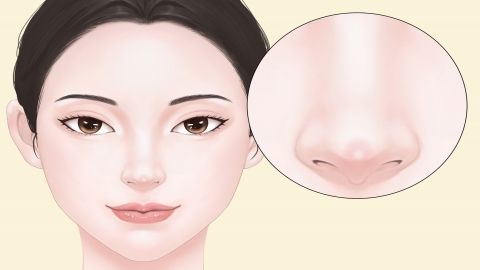What are the precautions to take before undergoing rhinoplasty?
Generally, rhinoplasty refers to nasal augmentation surgery. Methods of rhinoplasty include implant augmentation, costal cartilage grafting, hyaluronic acid injection, and autologous fat transfer. These procedures mainly involve augmenting the nasal bridge with autologous tissue, allograft tissue, or synthetic materials to improve the nasal contour. The usual reference price for rhinoplasty ranges from 3,000 to 8,000 yuan per session, with visible improvement typically observed within 1 to 3 months, although symptoms such as redness, swelling, and pain may occur. Before undergoing rhinoplasty, the following precautions should be taken: selecting a reputable medical facility and consulting with the surgeon, undergoing preoperative physical examination and health preparation, avoiding anticoagulant medications for two weeks before surgery, maintaining facial and nasal hygiene, and avoiding colds and inflammation. Detailed explanations are as follows:

1. Select a reputable medical institution and communicate with the surgeon
Choose a trustworthy medical facility or surgeon to perform the surgery and communicate thoroughly with the surgeon to reach a consensus on the surgical plan. Before the surgery, prepare questions to consult the surgeon in detail, ensuring a full understanding of the surgical procedure, expected outcome, and potential risks.
2. Preoperative physical examination and health preparation
Before surgery, ensure you are in good general health without infectious diseases or other inflammatory conditions. Patients with hypertension or diabetes should inform the surgeon of their conditions during the initial consultation so that the surgical plan can be adjusted accordingly. In addition, women should avoid surgery during menstruation.
3. Avoid anticoagulant medications within two weeks before surgery
Avoid taking anticoagulant medications containing aspirin or similar ingredients for two weeks prior to surgery, as these medications may impair platelet coagulation function and increase surgical risks.
4. Maintain facial and nasal cleanliness
It is recommended to take a shower the day before surgery. On the day of surgery, wash the face thoroughly with soap to remove dirt and oil, thereby reducing the number of bacteria. Additionally, clean the nasal cavity before surgery. If nasal hair is long, trim it neatly to maintain cleanliness at the surgical site.
5. Avoid colds and inflammation
Before surgery, avoid colds, respiratory infections, rhinitis, and other inflammatory conditions to ensure a non-inflammatory state, which is essential for successful surgery. Moreover, if there are facial skin conditions such as folliculitis, boils, or acne, they should be treated before surgery.
It is recommended to visit a reputable hospital and follow the guidance of qualified physicians to ensure the safety and effectiveness of the procedure. After surgery, it is important to keep the nose clean and dry, and avoid touching or pressing the nose with your hands to prevent implant displacement or affect the nasal shape.





